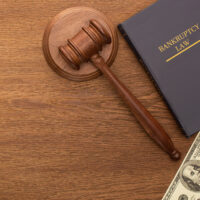Court of Appeals Rules in Favor of Bankruptcy Filers Discharging Debt Due to Social Security Overpayments

A recent decision by the U.S. Ninth Circuit Court of Appeals represents a major victory for Social Security recipients who received overpayments which then became a debt owed to the government. The court in its ruling made it clear that such debts are dischargeable in bankruptcy, providing immense relief for government aid beneficiaries in need of financial relief. Learn more about this momentous court case below, and contact Rounds & Sutter, LLP, for effective debt relief assistance from an experienced and dedicated Ventura bankruptcy lawyer.
What This Case Is About
The Social Security Administration (SSA) is a vast federal bureaucracy, and it may come as no surprise to learn that many recipients of Social Security sometimes receive overpayments due to errors in the system through no fault of their own. When SSA eventually learns it has made overpayments, it can lawfully go after the recipients and make them repay any overpayments through a process known as recoupment.
One approach to recoupment utilized by SSA is to withhold benefits payments to recover benefit payments. You might think the government would only hold out a portion of an individual’s benefits under a recoupment plan, but in theory SSA could withhold 100% of benefit payments until recoupment is completed. This previously unheard-of draconian approach has been the announced government policy under the new presidential administration.
Many people, including retirees and disabled individuals, rely on Social Security as their primary or only source of income. Not surprisingly, a significant portion of retirees living on a fixed income from Social Security have had to file bankruptcy due to rising healthcare costs and other factors that eat into their monthly benefits. A cut in benefits is one more reason that could send distressed individuals into bankruptcy.
The case of Cooper v. Social Security Administration involved an individual, Darrin Cooper, who suffered a disabling injury and began to collect first workers’ compensation and then applied for Social Security Disability benefits ten years later. Due to a mix-up in the way Cooper’s benefits were calculated, SSA overpaid Cooper, setting up an overpayment debt. About a year later, Cooper filed for and received a no-asset Chapter 7 bankruptcy discharge.
Soon after Cooper received his bankruptcy discharge, SSA began going after Cooper to recoup the overpayment debt. Cooper moved to reopen his bankruptcy case, arguing that SSA should not be able to collect a pre-bankruptcy debt after the bankruptcy discharge, since that is basically how Chapter 7 works – a bankruptcy discharge prevents creditors from collecting debts incurred before filing. The bankruptcy court, however, ruled that recoupment was allowable, and this decision was upheld by the Ninth Circuit Court’s Bankruptcy Appellate Panel. Cooper then appealed to the Ninth Circuit Court of Appeals itself.
In reversing the lower decisions, the Ninth Circuit held that it was unfair to allow recoupment against a post-discharge debtor like Cooper when the overpayment error was made without any malfeasance on Cooper’s part. Since recoupment is in legal terms an equitable doctrine, the lower courts erred in failing to “balance the equities” and consider what role Cooper played in SSA’s calculation mistake.
According to the court, Chapter 7 embodies two ideals: 1) to give the debtor a fresh start by discharging most debts, and 2) to equitably distribute the debtor’s assets among competing creditors. Once the bankruptcy trustee has liquidated the debtor’s assets and distributed the proceeds to creditors, the debtor is entitled to a discharge of prepetition debts. Discharge under Chapter 7 “releases the debtor from personal liability for pre-bankruptcy debts.”
Court Ruling Represents Timely Win for Consumers
The timing of this case could not be more appropriate. Under the Biden administration, SSA was working with social security recipients who received overpayments so that these recipients would not see a substantial or any decrease in their ongoing monthly social security checks, which many needed to live on to pay normal living expenses.
Unfortunately, the Trump administration reversed this policy so that Social Security recipients who received an overpayment of benefits, even through no fault or malfeasance of their own, could see their entire Social Security offset by the government and receive ZERO benefits based on the doctrine of recoupment.
With the Ninth Circuit’s ruling in Cooper, if a person through no malfeasance of their own was inadvertently receiving social security benefit overpayments, that person can now file bankruptcy and discharge those overpayment obligations without those overpayments being subject to recoupment post-discharge.
Contact Ventura Bankruptcy Attorneys Rounds & Sutter for Debt Relief in Southern California
While not a party to the litigation, the National Association of Consumer Bankruptcy Attorneys (NACBA) filed an amicus curiae (friend of the court) brief in support of the plaintiffs in the case. This group’s expertise in bankruptcy law and advocacy was no doubt instrumental in giving the court the information it needed to arrive at a sound decision. The attorneys at Rounds & Sutter, LLP, are proud to be longtime NACBA members and continue to gladly serve and support this important organization.
If you are experiencing overly burdensome debt due to medical bills, credit card debt, Social Security overpayments, or other factors in Oxnard, Camarillo, or throughout Ventura County and Southern California, contact Rounds & Sutter, LLP, for a free consultation to discuss your situation and find out how we can help.
